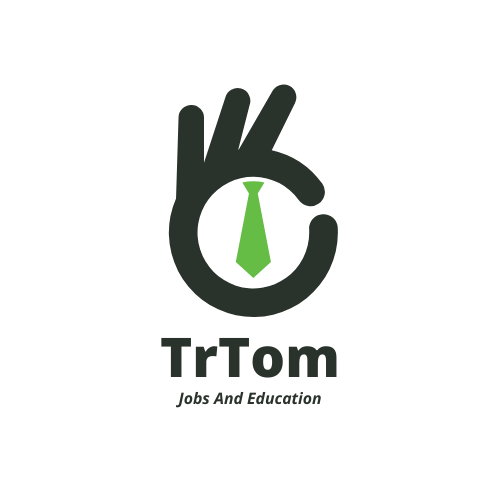UK Nursing Job Market
The UK nursing job market is highly competitive due to the high demand for healthcare workers, particularly nurses, caused by the global health crisis.
Nursing positions in the UK offer attractive salaries, benefits, and career growth opportunities.
The job market is constantly evolving, with new opportunities arising in both public and private healthcare sectors.
Registered nurses from Nigeria have the potential to find rewarding positions in the UK nursing job market.
Overview of nursing job opportunities in the UK
The UK nursing job market is highly competitive due to the high demand for healthcare workers, particularly nurses, caused by the global health crisis. Nursing positions in the UK offer attractive salaries, benefits, and career growth opportunities. The job market is constantly evolving, with new opportunities arising in both public and private healthcare sectors. Registered nurses from Nigeria have the potential to find rewarding positions in the UK nursing job market.

Qualifications and requirements for Nigerian nurses
To be eligible for nursing job opportunities in the UK, Nigerian nurses must have a recognized nursing qualification and be registered with the Nursing and Midwifery Council (NMC) in the UK. The NMC requires nurses to undergo a verification process to ensure their qualifications meet UK standards. Nigerian nurses must also demonstrate proficiency in the English language by passing the International English Language Testing System (IELTS) or another approved English language test. Additionally, nurses must meet specific requirements for immigration and visa purposes to work legally in the UK.
NMC Registration Process
The NMC Registration Process is a necessary step for Nigerian nurses seeking job opportunities in the UK.
It involves a thorough verification of their qualifications and registration with the Nursing and Midwifery Council (NMC) in the UK.
Nigerian nurses must carefully review the specific requirements outlined by the NMC to ensure their qualifications meet UK standards.
They need to gather and organize all necessary documents, such as their nursing qualification certificates and language proficiency test results.
Nigerian nurses should seek guidance from the NMC or other relevant regulatory bodies to navigate the complex application process successfully.
By following the step-by-step guide provided by the NMC, nurses can understand the process and know what documents and information they need to provide.
It is important to note that the NMC Registration Process may have some challenges, which nurses should be prepared for.
These challenges can include delays, additional documentation requests, or language proficiency requirements.
Despite these challenges, Nigerian nurses can navigate the NMC Registration Process by staying organized, seeking support, and being diligent in their preparations.
Step-by-step guide to NMC registration for Nigerian nurses
Nigerian nurses can follow a step-by-step guide to successfully register with the NMC in the UK.
First, they need to review the specific requirements outlined by the NMC.
Next, they should gather and organize all necessary documents, such as their nursing qualification certificates and language proficiency test results.
They should seek guidance from the NMC or other relevant regulatory bodies to navigate the application process.
By following the guide provided by the NMC, nurses can understand what documents and information they need to provide.
It is important to be prepared for challenges such as delays, additional documentation requests, or language proficiency requirements.
Despite these challenges, nurses can navigate the process by staying organized, seeking support, and being diligent in their preparations.
Common challenges faced during the NMC registration process
During the NMC registration process, Nigerian nurses may encounter common challenges. These challenges can include delays in processing applications, requests for additional documentation, and meeting language proficiency requirements. Nurses may also face difficulties in navigating the application process and understanding the specific requirements outlined by the NMC. It is important for nurses to be prepared for these challenges and seek guidance and support throughout the registration process. Despite the challenges, with perseverance and thorough preparation, nurses can successfully complete the NMC registration and pursue their nursing career in the UK.
Tailoring Your Resume and Cover Letter
Tailoring Your Resume and Cover Letter is crucial for Nigerian nurses seeking job opportunities in the UK.
They should customize their resume to highlight relevant experience and skills needed in the UK nursing industry.
Including key certifications, achievements, and clinical rotations can make their resume stand out.
In the cover letter, Nigerian nurses should demonstrate their knowledge of the UK healthcare system and their commitment to patient care.
They should also address how their skills align with the specific requirements of the job they are applying for.
Tailoring the resume and cover letter shows employers that Nigerian nurses have taken the time to research and understand the UK nursing market, increasing their chances of landing a job opportunity.
Tips for highlighting relevant experience and skills for UK nursing positions
For Nigerian nurses seeking UK nursing positions, it is important to highlight relevant experience and skills in their applications.
They should include certifications, achievements, and clinical rotations that are specific to the UK nursing industry.
Emphasizing experience in areas such as patient care, medication administration, and recordkeeping can make their applications stand out.
It is also beneficial to mention any additional training or specializations that align with the requirements of the position.
By showcasing their skills and experience, Nigerian nurses can demonstrate their suitability for UK nursing positions.
Crafting a compelling cover letter for job applications
Crafting a compelling cover letter for job applications is crucial for Nigerian nurses seeking opportunities in the UK. It allows them to showcase their skills, experience, and passion for nursing. The cover letter should be tailored to the specific job and highlight relevant qualifications. Using a professional tone and concise language will make it stand out to potential employers. Including specific examples of achievements and experiences can further demonstrate their suitability for the position. Proofreading the cover letter for any errors or typos is essential before submitting it. A well-crafted cover letter can greatly increase the chances of securing a job interview in the competitive UK nursing job market.
Interview Preparation
Interview Preparation:
- Interview preparation is essential for Nigerian nurses seeking job opportunities in the UK.
- They should research common interview questions and practice their responses.
- Mock interviews can be helpful in gaining confidence and improving their interview skills.
- It is important for nurses to showcase their knowledge, skills, and experience during the interview.
- They should also research and demonstrate an understanding of the UK healthcare system.
- Dressing professionally and arriving early for the interview are important aspects of preparation.
- Being prepared to ask questions about the role and organization shows interest and engagement.
Common interview questions and how to best respond
Common interview questions and how to best respond:
- “Why did you decide to become a nurse?”
- The candidate should provide a genuine and personal reason for choosing nursing, such as a passion for helping others or a desire to make a difference in people’s lives.
- “Tell us about a situation where you had to deal with a difficult and demanding patient and what you did.”
- The candidate should share a specific experience, highlighting their ability to remain calm, communicate effectively, and find a solution to the problem.
- “Why do you want to work at this hospital/office?”
- The candidate should demonstrate their knowledge of the hospital or office, emphasizing alignment with the organization’s values, mission, and commitment to patient care.
- “How do you handle stressful situations?”
- The candidate should describe their coping mechanisms, such as prioritizing tasks, seeking support from colleagues, and maintaining a positive attitude.
- “Tell us about a time when you made a mistake and how you handled it.”
- The candidate should acknowledge the mistake, take responsibility, and explain how they learned from it and implemented changes to prevent it from happening again.
- “How do you stay updated with the latest developments in nursing?”
- The candidate should mention their participation in continuing education programs, attending conferences or workshops, and keeping up-to-date with relevant research and literature.
- “Describe a time when you had to work as part of a team to achieve a goal.”
- The candidate should discuss a collaborative project or situation, highlighting their ability to communicate effectively, delegate tasks, and contribute to the team’s success.
- “What qualities do you possess that make you a good fit for this nursing position?”
- The candidate should highlight relevant skills, such as compassion, empathy, strong communication, critical thinking, and the ability to work well under pressure.
- “How do you handle conflicts with colleagues or superiors?”
- The candidate should emphasize their ability to approach conflicts with respect, active listening, and a solution-oriented mindset, focusing on maintaining positive working relationships.
- “Tell us about a time when you went above and beyond for a patient’s care.”
- The candidate should share a specific example, showcasing their dedication, empathy, and willingness to go the extra mile to ensure the best possible care for the patient.
Remember, the key to responding to these questions is to provide specific examples and demonstrate a combination of technical skills, compassion, and professionalism.
Mock interview practice and preparation tips
Mock interview practice and preparation tips for Nigerian nurses seeking job opportunities in the UK can greatly enhance their chances of success. It is important to research common interview questions and practice answering them. Role-playing with a friend or mentor can help improve confidence and communication skills. Additionally, preparing examples from past experiences and highlighting relevant skills will allow nurses to showcase their abilities effectively. Dressing professionally, arriving on time, and conducting thorough research about the potential employer are other crucial tips. Finally, staying calm, maintaining good posture, and showcasing enthusiasm during the interview can make a lasting impression on the hiring manager.
Networking and Building Connections
Networking and building connections are essential for Nigerian nurses seeking job opportunities in the UK.
Attending industry conferences, workshops, and seminars allows nurses to stay updated with current trends and meet potential employers and colleagues.
Online platforms, such as professional networking sites and forums, provide avenues to connect with healthcare professionals in the UK and access job listings.
Building a professional network in the UK nursing industry increases visibility and can lead to valuable referrals and job opportunities.
Establishing meaningful relationships with recruiters, employers, and colleagues can provide valuable insights and insider information about job openings.
By actively networking, Nigerian nurses can expand their professional circle and increase their chances of finding the right job in the UK.
Utilizing online platforms and networking events to connect with healthcare professionals in the UK
Nigerian nurses seeking job opportunities in the UK can utilize various online platforms and networking events to connect with healthcare professionals in the industry. These platforms, such as LinkedIn and professional nursing forums, provide opportunities to network, share experiences, and access job listings. Attending industry conferences, workshops, and seminars also allows nurses to meet potential employers and colleagues, expanding their professional circle and increasing their chances of finding the right job. Building a strong network in the UK nursing industry increases visibility and can lead to valuable referrals and job opportunities.
Importance of building a professional network in the UK nursing industry
Building a professional network in the UK nursing industry is crucial for career growth and job opportunities.
Nurses who have a strong network can tap into the knowledge and experiences of their peers, gaining valuable insights and advice.
Networking allows nurses to stay updated on industry trends, advancements, and job openings.
Through networking, nurses can establish connections with healthcare professionals, potential employers, and industry leaders.
These connections can lead to mentorship opportunities, job referrals, and professional development opportunities.
Attending networking events and joining professional organizations provides opportunities to meet and connect with like-minded professionals in the field.
Expanding one’s professional network also increases visibility and enhances professional reputation within the industry.
Overall, building a professional network in the UK nursing industry can significantly enhance career prospects and open doors to new opportunities.
Conclusion
The conclusion section provides a summary of key takeaways for Nigerian nurses seeking job opportunities in the UK. It emphasizes the importance of understanding the UK nursing job market and the qualifications required. It also highlights the NMC registration process and the challenges that may arise. Tailoring resumes and cover letters to showcase relevant experience and skills is crucial. Additionally, interview preparation and networking are essential for success. Nigerian nurses are encouraged to utilize resources and support available to them during their job hunt in the UK.
Key takeaways for Nigerian nurses seeking job opportunities in the UK
Nigerian nurses seeking job opportunities in the UK should familiarize themselves with the UK nursing job market and its specific requirements.
They need to go through the NMC registration process, which involves a step-by-step guide and may have its challenges.
It is crucial for them to tailor their resumes and cover letters to highlight relevant experience and skills for UK nursing positions.
Preparation for interviews is essential, including practicing common questions and honing their responses.
Networking and building connections with healthcare professionals in the UK can greatly enhance their job prospects.
In conclusion, Nigerian nurses should be proactive, resourceful, and seek support throughout their job hunt to increase their chances of success.
Further resources and support for a successful job hunt
There are various resources and support available to Nigerian nurses seeking job opportunities in the UK.
Online job boards and websites specifically cater to healthcare and nursing positions in the UK.
Professional nursing organizations and associations often provide job listings and career guidance for nurses.
Career counseling services can offer personalized assistance, helping nurses navigate the job market and identify suitable opportunities.
Networking events, both online and in-person, allow nurses to connect with healthcare professionals and potential employers.
Attending workshops and seminars on UK nursing regulations and job application processes can enhance nurses’ knowledge and skills.
Recruitment agencies specializing in healthcare and nursing can assist nurses in finding suitable job placements.
Mentorship programs provide guidance and advice from experienced nurses who have already successfully navigated the UK job market.
Government agencies and international organizations may offer scholarships or funding opportunities for foreign nurses.
Seeking support from family and friends who have already gone through the process can provide valuable insights and recommendations.
It is important for Nigerian nurses to tap into these resources and support systems to maximize their chances of a successful job hunt.

